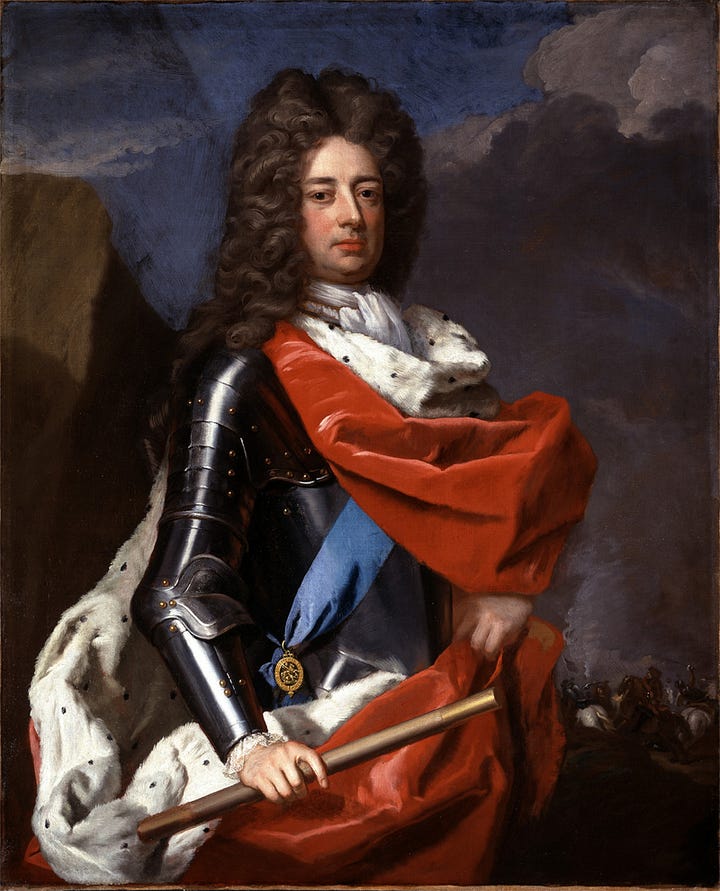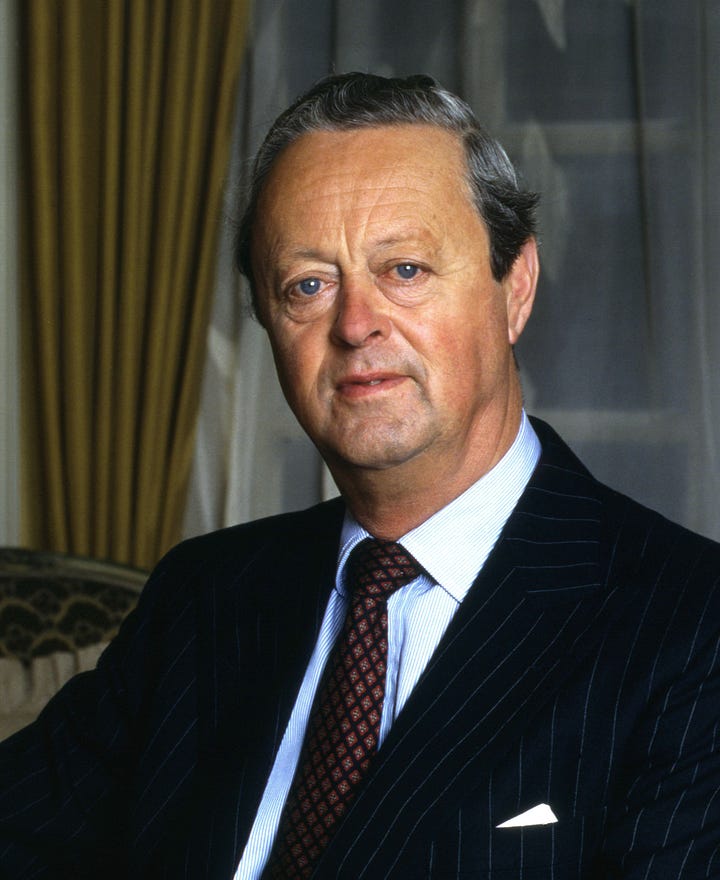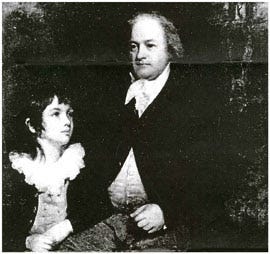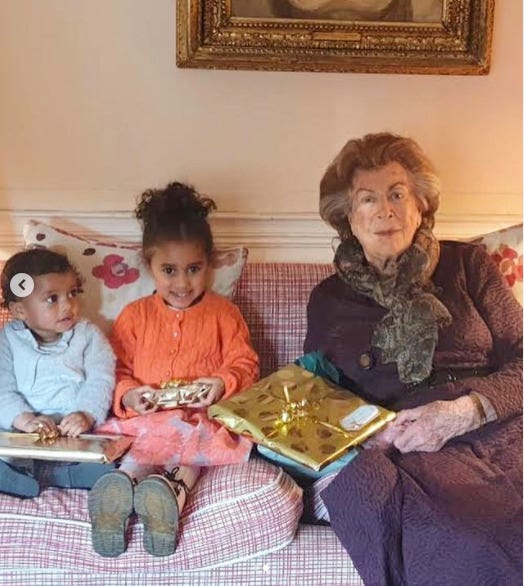"What's in a name?"
Happy New Year and Epiphany (for those on the Gregorian ecclesiastical calendar) to all members of the Oxford Dawn community!
As startup life continues to be frenetic, I will be sending out two reprints in the next week. This is the first of a two-part issue.
This issue was one of the first I wrote in 2021. It was later picked up by RealClearEducation, courtesy of Notes on Liberty. Some of the details are outdated, e.g. the titles for Catherine Wales, but the fundamental information is valid.
2025 update: Some of the people mentioned in this post have since become embroiled in controversy. I have chosen to not remove mention of them as their personal views are not germane to the subject at hand.
He may call himself Mr Pelham to his heart’s content. He is Lord Hexam in this house.
~ Downton Abbey
Carson the butler says this in response to learning that Lady Edith Crawley’s husband, Mr Bertie Pelham, has just inherited the Marquessate of Hexam from a cousin. Bertie doesn’t want to assume the title until his cousin is buried, but Carson reminds the staff that system of aristocracy doesn’t work like that. The king is dead, long live the king. Mr Pelham is now Lord Hexam whether he wills or not. A little knowledge of the system and possibly a little less cognitive bias might have prevented an embarrassing episode.
Back in March, The Independent issued a small clarification without any fanfare: On 12 March 2021 we published an article headlined: ‘I’m a black British member of the aristocracy. I love the royal family — but I know what Meghan said was true,’ written by Alexander Maier-Dlamini in which he was described as the “Marquess of Annaville - the last of the Irish peerages”. This was incorrect, there is no Marquess of Annaville in the Irish peerage. The article in question ran in the midst of the fallout from the Duke of Sussex and his wife’s interview with Oprah in which they described his family as racists and British and American society as equally racist just in different ways. In particular Meghan Sussex implied that her son was denied a title due to his mixed-race heritage (he has a title, Earl of Dumbarton: the parents won’t use it.). The Marquess of Annaville threw his weight behind the Sussexes, arguing that he knew they were right because of his personal experiences. However, there is no Marquess of Annaville.
The fake Marquess turned out to be a 22-year old American student from New Rochelle, New York, with very little knowledge of titles, peerages, aristocracy, or how any of those things worked. The only true things about the man are that his name is Alexander Maier-Dlaimini — his husband’s last name is Dlamini — and he is Black. After Debrett’s proved that there was no Marquessate of Annaville, he confessed to his fraud. In a statement he said, “There is no title in the peerage related to me whatsoever. I do apologize greatly to those institutions involved with a mechanism like this, many of which I'm obviously not familiar with.” “Not familiar with” is an understatement.
The fact that The Independent ran this man’s op-ed represents an appalling lack of due diligence. The Independent quietly deleted the article, but not before I and a horde of netizens read it. In almost no time, other publications and the general public established that there was no Marquessate of Annaville, a fact that the newspaper could have been checked by a quick search of Debrett’s online database, or Burke’s Peerage database. These two resources both require subscriptions to access the databases, but considering The Independent is a major publication, it is reasonable to expect them to pay for such things as part of basic due diligence. But there were other tells which make the fact that no search was done on the fake marquess inexcusable.
He signed his article “Lord Alexander Maier-Dlamini, Marquess of Annaville.” This is a mix of forms. The first, “Lord Alexander Maier-Dlamini,” is the form for a younger son, and it is incorrect to use this for the peer, i.e. the holder of the title. Alexander Maier-Dlamini claimed to be the Marquess, and therefore would be the peer. The correct form for the peer is either: 1) Alexander Maier-Dlamini, Marquess of Annaville, or 2) Lord Annaville. This is very basic information that is part of simply being socially aware and is freely available. Back when I was interning at Austrian Economics Center in Vienna, Debrett's website provided information on the etiquette of writing titles. Why The Independent didn't catch Maier-Dlamini's incorrect use of form is beyond me.
According to one of the netizens who helped catch him, even after apologizing for his fraud, Maier-Dlamini continued to publish as a fake aristocrat under the name “Lord Zigmund Annaville,” purportedly the brother of “Lord Alexander.” There are two things to notice that are wrong: 1) "Zigmund" is a phonetic spelling of the German "Sigmund," and while it has been used historically, it has not been used in mainstream European society since at least the 1800s; an aristocratic family is unlikely to make that mistake; 2) Annaville is the peerage, not the family name, so a younger son would not use it. Peers and their wives (but not the husbands of female peers) may use their peerage as their last name. So it is correct to refer to Catherine, Duchess of Cambridge as Catherine Cambridge. It would not be correct to call her younger son, Prince Louis,“Louis Cambridge.” [UPDATE: as of 2023, the correct forms are Catherine Wales and Louis of Wales. The “of” in the case of Prince Louis signifies that he is a son of the Prince of Wales and does not have his own peerage.] If Lord Zigmund really existed, his correct form would be “Lord Zigmund Maier.” He would use the family name, not the peerage.


As a commentator at the time pointed out in an article I haven’t been able to find, claiming to be the 11th Marquess should have been enough to trigger red flags with the people over at The Independent. Assuming an average of three generations per century (grandfather, son, grandson), the peerage would have been created around the 1600s, possibly even earlier, and the family could potentially be much older. Marquesses tend to be senior peers of whatever realm they are in, so therefore it is impossible for no one to have heard of a Marquess of Annaville if it really existed. Given the presence of the aristocracy in British history, the Marquesses of Annaville or other members of the Maier family would have been all over the history books. For a comparison, the 11th Duke of Marlborough died in 2014. The Dukedom was created in 1689 as an upgrade for the then-Earl of Marlborough. The Churchill family (they re-hyphenated their name to Spencer-Churchill in the mid-twentieth century) is one of the most storied in British history, having produced Sir Winston Churchill, who was never confused about whether he was Winston Churchill or Winston Marlborough. He easily could have been: when he was born, he was second-in-line, behind his father Lord Randolph Churchill. Fortunately for history, the 8th Duke married late in life and had a son; if he had not, Winston could have been the duke in World War II and as a peer would have been barred from becoming Prime Minister. From what I know, Lord Randolph Churchill and Winston were a little squiffy when their brother and uncle's new wife produced a son, who effectively destroyed their hopes of acceding to the title. Perhaps one can attempt to be charitable and assume that Alexander Maier-Dlamini thought peerages worked like the U.S. presidency: the incumbent vacated after at most eight years. Hypothetically, this could explain why the Annaville title was so far along in holders but no one could remember the incumbent's predecessors.

As part of his op-ed, Maier claimed that he was constantly having to explain his lineage and how he came to be a marquess as no one believed a Black man could be a titled aristocrat. In doing so, he revealed the time contradiction — if the Annaville title was an old one, everyone would have remembered his father’s marriage to his mother when it was announced twenty some-odd years ago. No, this is not an assumption; in order for a son to inherit his father’s titles, the father has to have been married to the mother at the time of the child’s birth, otherwise the child is illegitimate and cannot claim his father’s titles. A marriage for someone as important as a Marquess would have been announced in the major newspapers. Of course Maier-Dlamini also revealed his ignorance of the Black and other minority life peers sitting in the House of Lords in Parliament.1
For the other part of his claim that people racially profiled him, it is believable that that detail missed vetting given how many people seem to be unaware that there are plenty of people of African or other minority descent married into the British aristocracy, in addition to the ones holding peerages in their own rights. The Marchioness of Bath, wife of the 8th Marquess, is the daughter of an Oxford-educated Nigerian chief. She studied at Art History at University College London and classical drama at the London Academy of Music and Drama. Her words in response to questions about being a Black marchioness were, “I see my role as a practical thing: as a wife, mother and someone with a responsibility to maintain this incredible estate. I aspire to a future where [my skin colour] is not a defining characteristic.” Lord Mountbatten’s great-granddaughter and first cousin twice removed (granddaughter of first cousin) of Prince Philip is married to a Black man, with whom she has three children. She and they are in the line of succession for both the Earldom of Burma and the British throne. She put up a picture of her children and grandmother, Lady Pamela Hicks, Lord Mountbatten’s second daughter on Instagram in April 2021, a month after The Independent ran its fake story.
There’s probably no connection, but one wonders. And lest anyone think that it’s African-Americans who seem to have trouble with the British aristocracy, indisputably Black American Candace Owens is married to the Honourable George Farmer, son of Michael Farmer, Baron Farmer. Owen's and Farmer's son is a mixed-race member of the aristocracy. Her retort in response to issues of titles and race was “If you have seen a picture of Archie and you believe he suffered anti-black racism, then call me a Nigerian prince and give me your credit card number.” In claiming racist profiling, Alexander Maier-Dlamini revealed that he was unable to transcend the boundaries of his own limitations and concocted stories which might fit the experiences of a boy from New Rochelle, but which reveal that he didn’t do the most basic research on the group of people whose membership he claimed.
Alexander Maier-Dlamini’s failure to research or to understand the intricacies of aristocracy are his own. The Independent giving him a platform is theirs. It would be nice to say that The Independent’s editors suffered from bias confirmation, that psychological condition where because the data appear to fit preformed conclusions, one doesn’t check. The reality, though, is that there were so many signs that Maier-Dlaimini was a fraud that there is no explanation for the editors’ failure. Even the most bias-blinded person should be able to stop and say “wouldn’t a real aristocrat know whether he is Lord Annaville or Lord Alexander?” Since the answer is “yes, a real aristocrat would know.” That should have triggered a fact check.
Happy Sunday!
And this is even before a comprehensive list of people of African descent who have married central European aristocracy or royalty.



